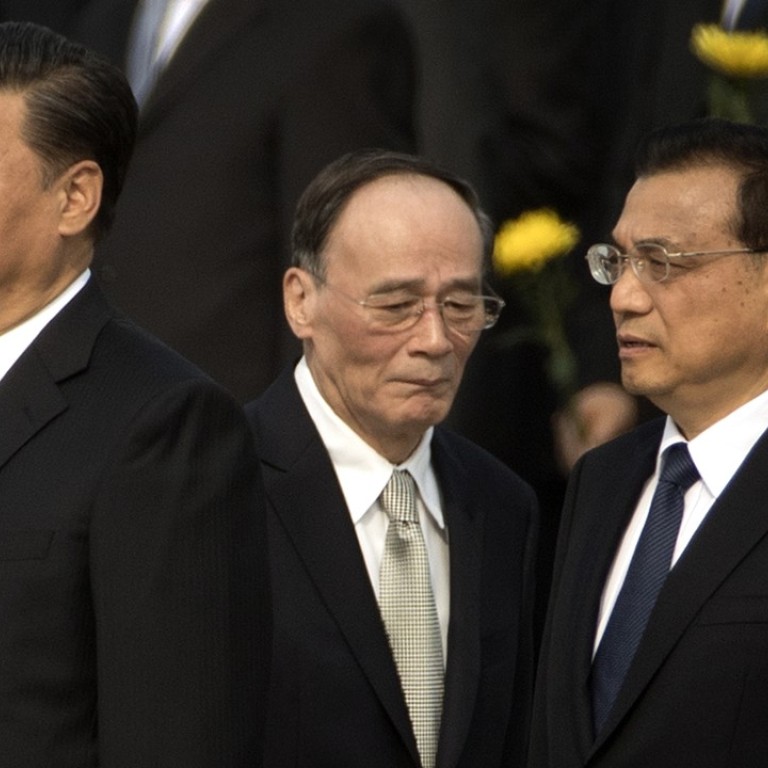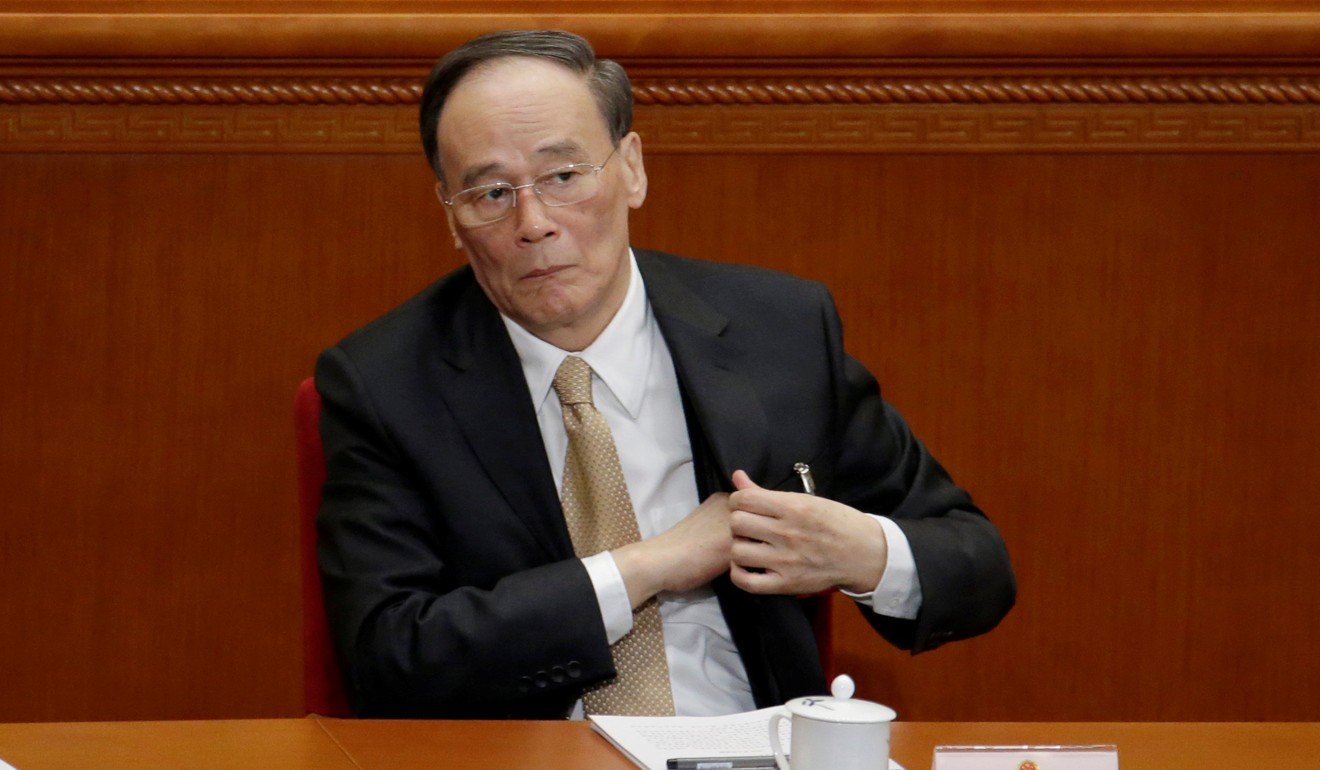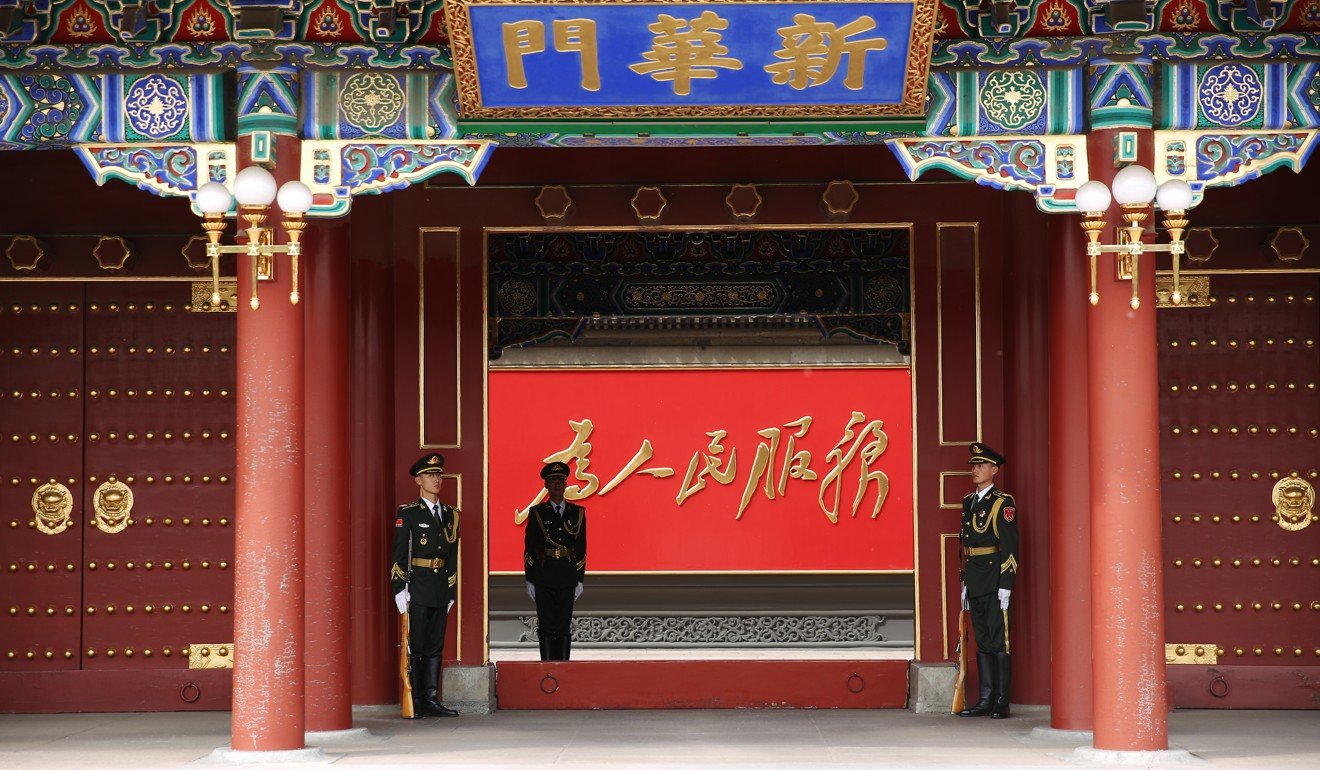
Exclusive | Wang Qishan still attending top Communist Party meetings and in line for China’s vice-presidency
Wang, 69, left the Politburo Standing Committee in the reshuffle at the party’s five-yearly national congress in October
Wang Qishan, China’s formidable former anti-corruption tsar, will continue to wield political influence in new Communist Party and state roles carved out for him by president and party chief Xi Jinping.
He has been given the rare privilege of attending meetings of the party’s supreme Politburo Standing Committee as a non-voting member, despite having stood down from the highest decision-making body in Chinese politics in October.
Meanwhile, he is also expected to be named vice-president – a less significant role in the Chinese hierarchy – at the annual session of the National People’s Congress, China’s legislature, in March, according to several sources.
Wang, 69, left the Politburo Standing Committee in the reshuffle at the party’s five-yearly national congress in October and has quit all party leadership roles.
There had been intense speculation before the reshuffle that Xi was considering circumventing informal retirement rules that require Politburo and Politburo Standing Committee members aged 68 or above at the time of a party congress to stand down. However, Xi ultimately respected the informal rules and leaned towards maintaining political continuity and stability when deciding the leadership line-up.
But Wang’s crucial role in implementing Xi’s successful anti-graft campaign over the past five years and his proven skills as a problem solver, on issues ranging from a financial crisis in the 1990s to an outbreak of severe acute respiratory syndrome in 2003, have convinced Xi to keep Wang on in different but equally significant roles.

Some analysts say keeping Wang on would also send a powerful message about the continuation of Xi’s unprecedented anti-corruption campaign, which has netted hundreds of thousands of corrupt officials in the past five years.
Chen Daoyin, a Shanghai-based political scientist, said Xi’s decision to retain Wang, who had acquired formidable personal authority in the past five years, was aimed at enhancing political stability and continuity.
“Wang is not a member of the Politburo Standing Committee, so he is not likely to cast any vote, but he shall be able to speak as an elder or consultant,” he said.
Allowing Wang to continue to attend meetings of the Politburo Standing Committee is a significant departure from recent practice but not without precedent.
In the 1980s, president Yang Shangkun was merely a Politburo member but was allowed to attend meetings of the innermost Politburo Standing Committee.
There are also precedents for the naming of Wang as vice-president.
In the late 1980s, Wang Zhen became vice-president after he stepped down from the Politburo and he was succeeded in the mid 1990s by Rong Yiren, who was not known to be a party member.
The vice-presidency was merely a ceremonial job at the time, but it took on more importance in 1998, when Hu Jintao assumed the job as a member of the Politburo Standing Committee.

Xi was vice-president and a Politburo Standing Committee member for five years before he succeeded Hu as the head of the party in 2012 and head of state in 2013.
But the vice-presidency became less important once again in 2013 with the appointment of Li Yuanchao, a Politburo member, to the post. Li stepped down from the Politburo in October.
One sign of Wang Qishan’s continuing stature despite his retirement is that he is still believed to work at the Zhongnanhai leadership compound in central Beijing – the headquarters of the party and government.
His new roles are expected to be welcomed by the international business community because of his reformist credentials.
Last month he hosted a welcome dinner for international business leaders on the advisory board of Tsinghua University’s school of economics and management, including Apple chief executive Tim Cook and former US treasury secretary Henry Paulson, sources said.
But Beijing-based political commentator Zhang Lifan said Wang Qishan’s new roles could raise concerns about a return to the gerontocracy of the 1980s, when retired or semi-retired party elders still wielded strong political influence.

